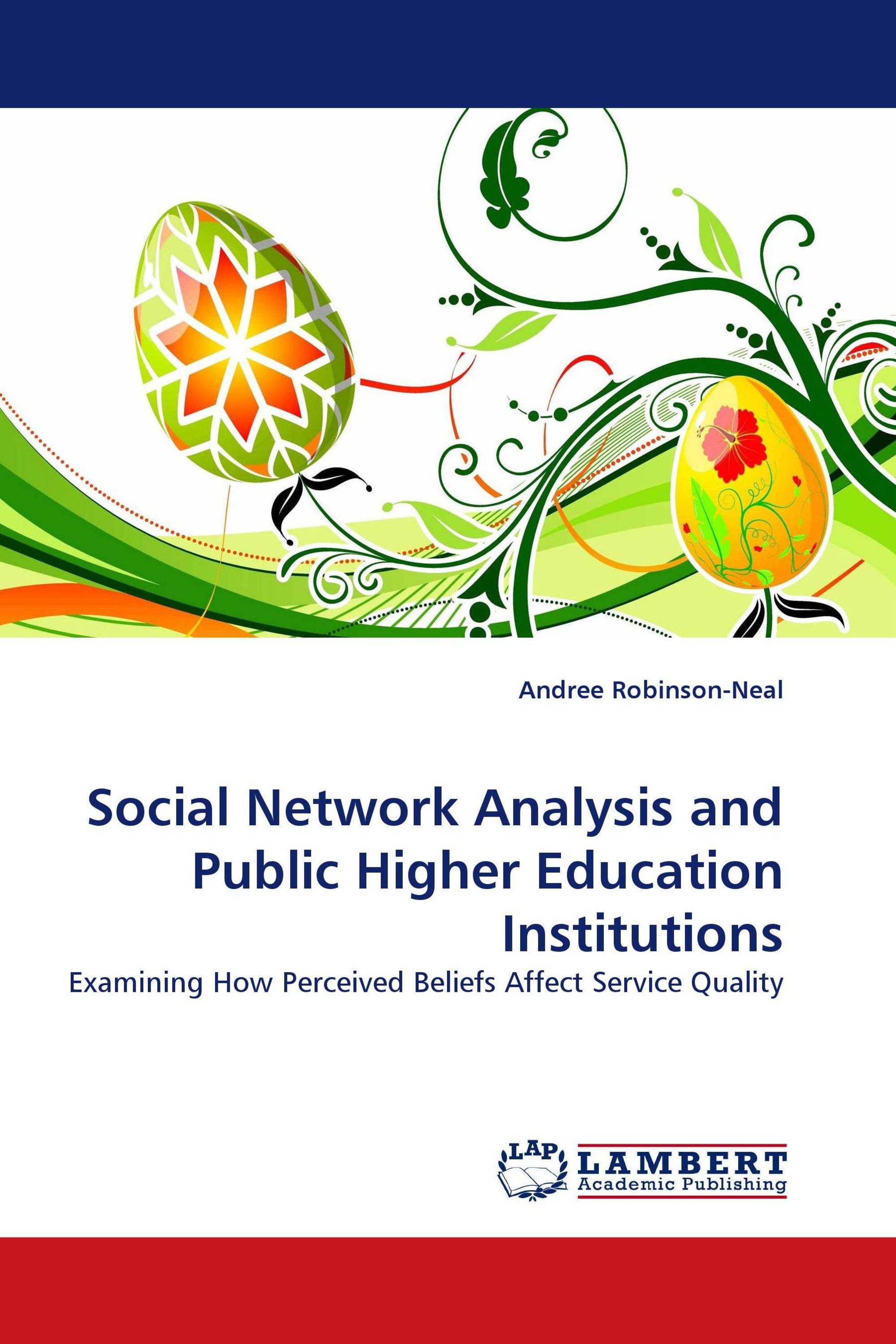Social Network Analysis and Public Higher Education Institutions
Examining How Perceived Beliefs Affect Service Quality
LAP Lambert Academic Publishing ( 2010-01-22 )
€ 68,00
In business, educational, and other organizations, team members often connect with one another in informal groups in order to fill certain needs (Accel-Team, 2006). Such needs include the ability to connect with others who share worldviews, opinions, or beliefs. When social network analysis (SNA) or concept mapping is used to examine interpersonal interactions in higher education institutions, administrators can learn about the informal relationships between the people in their departments and how those relationships affect workflow and customer service. For the purpose of this study, “beliefs” can be defined as confidence, faith, or trust. “Customer service” can be defined as service to students, faculty, and other staff members. The purpose of this research was to assess whether perceived beliefs affect quality of service at public higher education institutions (IHEs). Study resultsindicate that while perceived beliefs influence sociability at IHEs, a more focused qualitativeproject that includes observation and interviews may provide more detailed information about the nature of workplace networks and the influence perceived beliefs have on their formation.
Book Details: |
|
|
ISBN-13: |
978-3-8383-4063-0 |
|
ISBN-10: |
3838340639 |
|
EAN: |
9783838340630 |
|
Book language: |
English |
|
By (author) : |
Andree Robinson-Neal |
|
Number of pages: |
164 |
|
Published on: |
2010-01-22 |
|
Category: |
Education system |




